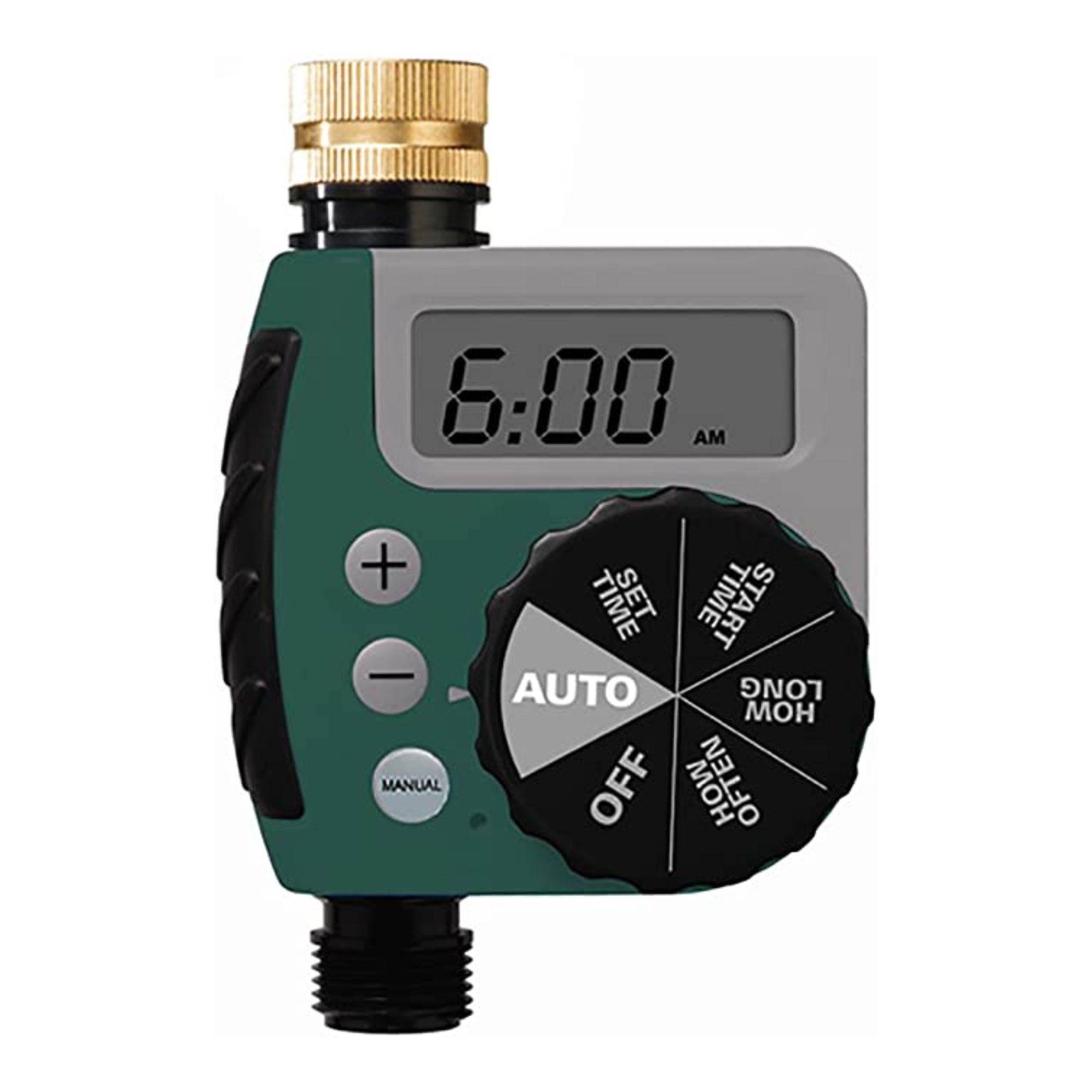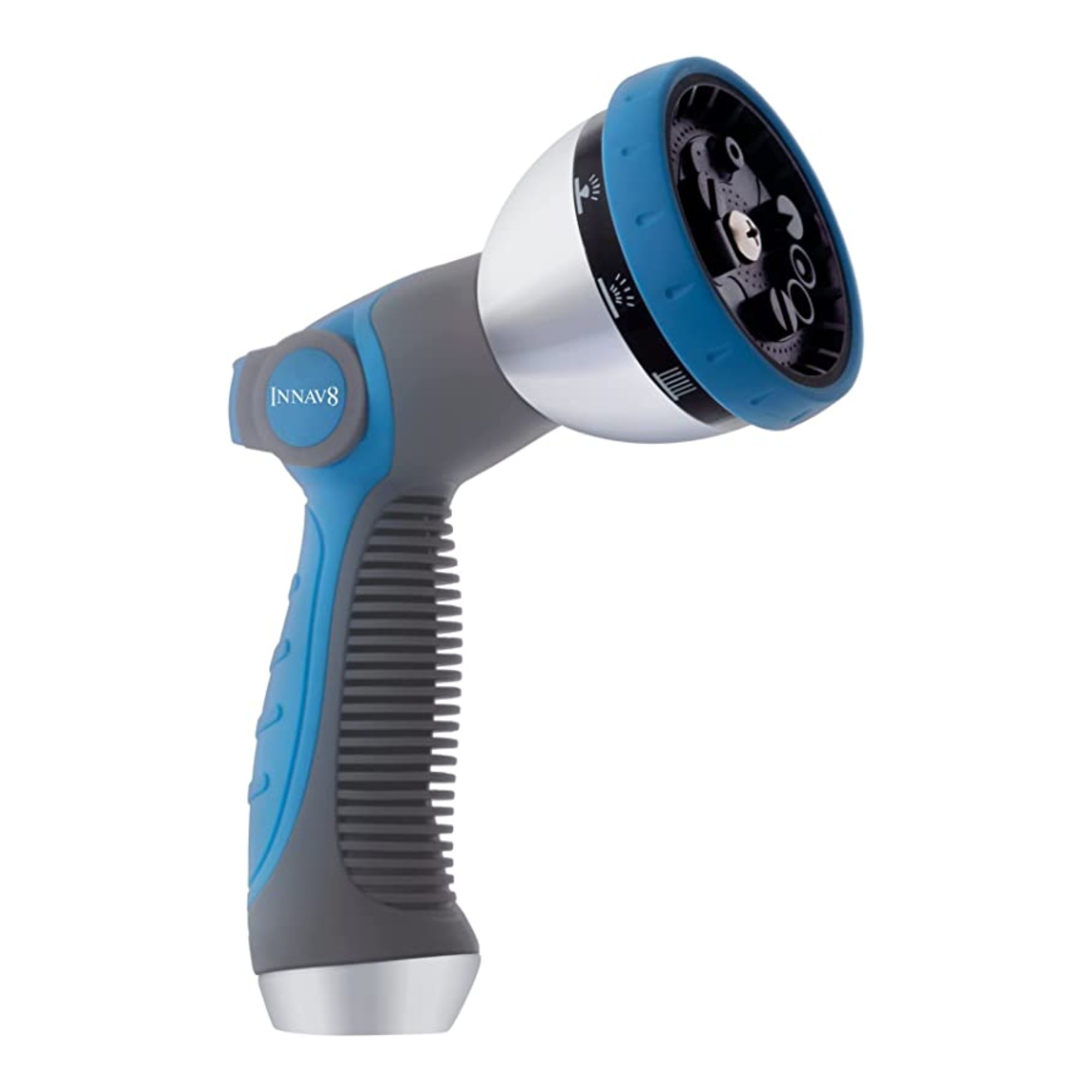Should you water the lawn at night? Top lawn care experts give their verdict
It may seem like a good idea, but will watering your lawn at night boost the health of your grass or cause damage? Find the answers here


Design expertise in your inbox – from inspiring decorating ideas and beautiful celebrity homes to practical gardening advice and shopping round-ups.
You are now subscribed
Your newsletter sign-up was successful
Want to add more newsletters?

Twice a week
Homes&Gardens
The ultimate interior design resource from the world's leading experts - discover inspiring decorating ideas, color scheming know-how, garden inspiration and shopping expertise.

Once a week
In The Loop from Next In Design
Members of the Next in Design Circle will receive In the Loop, our weekly email filled with trade news, names to know and spotlight moments. Together we’re building a brighter design future.

Twice a week
Cucina
Whether you’re passionate about hosting exquisite dinners, experimenting with culinary trends, or perfecting your kitchen's design with timeless elegance and innovative functionality, this newsletter is here to inspire
We all long for a green, lush lawn but should you be watering the lawn at night to keep it looking as good as possible?
The temptation – especially with hose pipe timers and sprinkler systems becoming more intelligent and affordable – is to water at night, away from the sun’s harsh glare and soaring temperatures. However, what can be convenient for us is not, necessarily, the best for your grass.
We asked lawn care experts why this is and the likely risks and consequences of watering your lawn at night. They also share tips on how to limit the damage if you absolutely have to complete this lawn care task at night.
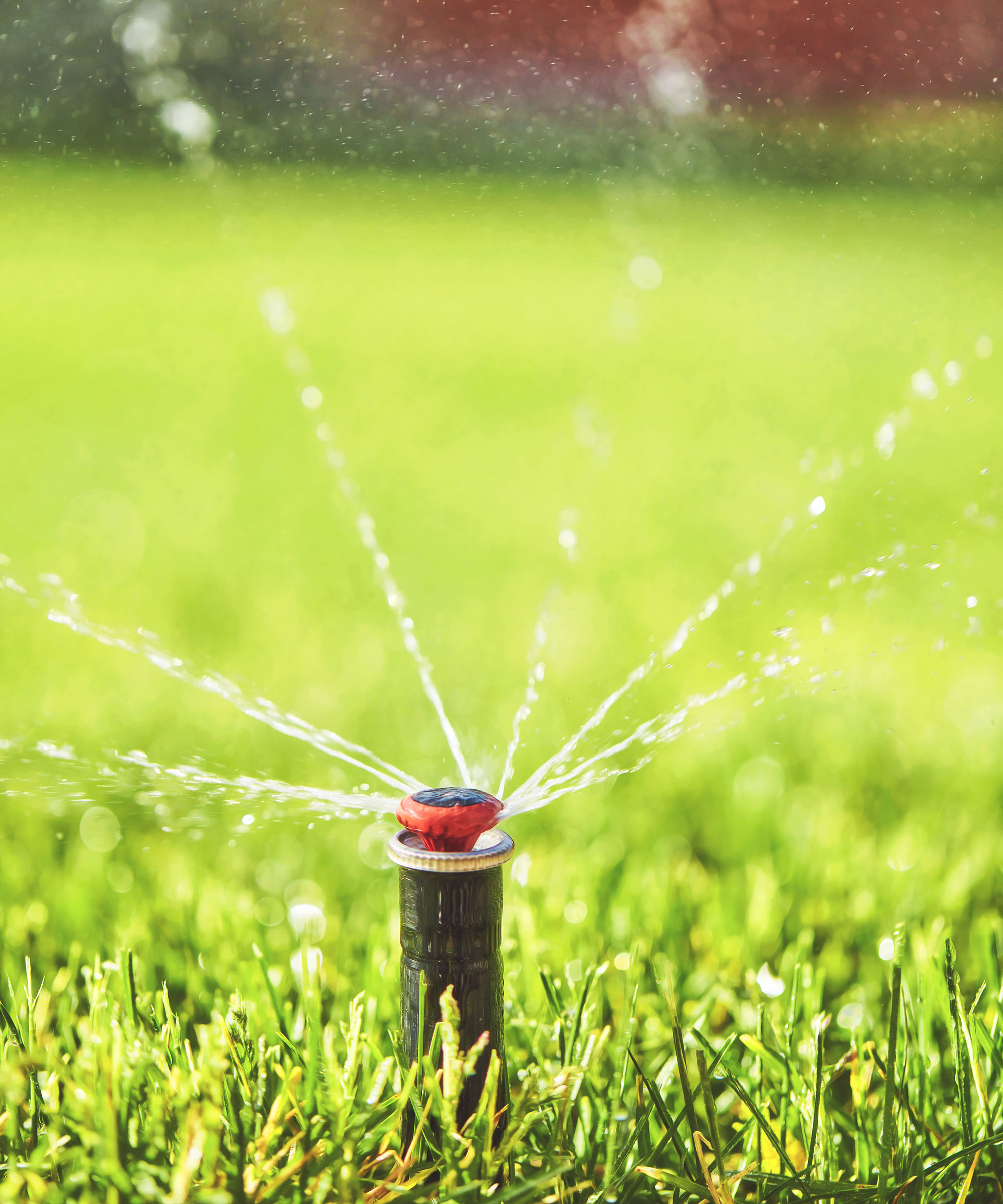
Cons of watering a lawn at night
Knowing the best time to water your lawn is often key to it growing well during hot weather and when there's a lack of rainfall. And although it’s something that many of us have done, according to lawn care specialists there are some very valid reasons why drenching your grass overnight is a big lawn watering mistake.
‘While watering your lawn at night might seem convenient, it's typically not the most recommended practice due to one major drawback: the potential for fungal diseases,’ says Ryan Farley, CEO of Lawn Starter. ‘Watering your lawn at night means the water doesn't have a chance to evaporate quickly due to lower temperatures and the absence of sunlight. This can leave your lawn damp for long periods, creating a perfect environment for fungi and other lawn diseases to thrive.’
As Stacie Smith, owner of landscaping experts Smithson Exteriors explains in more detail, ‘The con is that the pores (stomata) on the leaves of grass open during daylight to expel moisture (transpiration). If the lawn is watered at night, this process will not happen and can lead to fungal and bacterial growth, plant rot, and even pest problems.’
Besides the threat of encouraging diseases and fungi there are other important health and practical issues to consider too. Gene Caballero, co founder of GreenPal says that, ‘watering at night can create a breeding ground for mosquitos and other pests. It can also leave the grass wet and slippery, which can be a hazard for both people and pets.’
Design expertise in your inbox – from inspiring decorating ideas and beautiful celebrity homes to practical gardening advice and shopping round-ups.
Pros of watering a lawn at night
Despite the negative reasons for watering a lawn at night, there are still some attractive benefits for completing this task later in the day, as Gene Caballero explains. ‘It can help to prevent evaporation, which means that more water will reach the roots of the grass. Plus, it also helps to cool down the lawn in hot climates.
'There’s also a chance that it can reduce noise pollution, as there are fewer people awake to hear the sprinklers running.’
By watering plants at the same time in the evening you can potentially reduce your overall water consumption too.
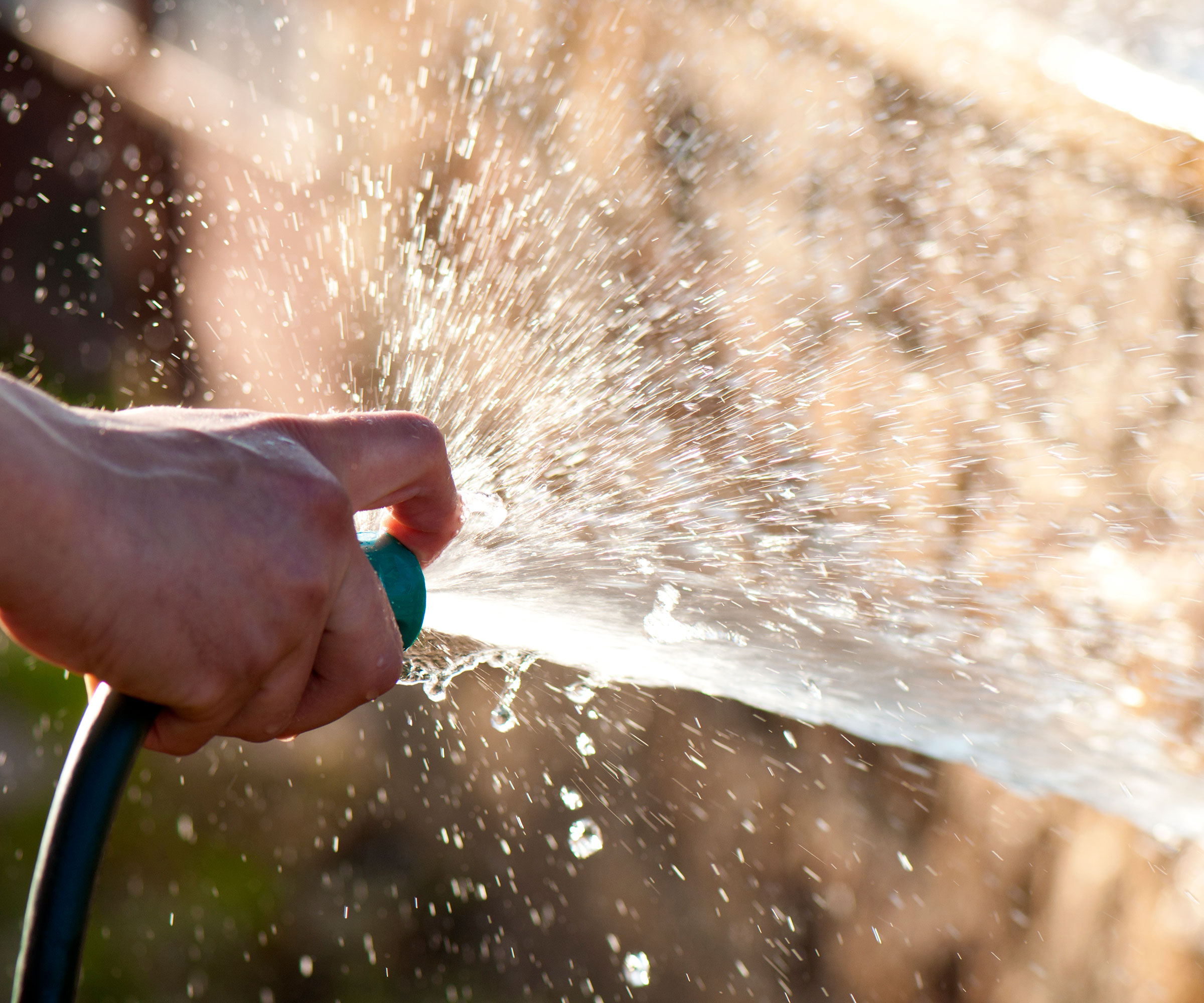
Precautions to prevent lawn damage
Sometimes, with our hectic lifestyles, we simply have no choice as and when to do essential chores and watering the lawn certainly falls into this category. If you do find yourself in this situation Stacie Smith says, ‘If you have to water in the evening, try to give at least a couple hours of sunlight after watering so the blades of grass can dry before nightfall.’
Gene Caballero also warns against getting into the habit of watering late in the day. ‘Watering the lawn at night can be harmful if it is done too often or if the lawn is not properly maintained. If you do choose to water your lawn at night, it is important to follow these precautions.
- Water deeply and less often This will help to encourage the roots of the grass to grow deeper, which will make the lawn more drought-tolerant.
- Water early in the evening This ensures that the grass has time to dry before nightfall.
- Avoid watering if the temperature is below 50˚F Low temperatures and cold water can shock the grass.
- Avoid watering the lawn during the winter months This is particularly relevant if you live in a cold climate due to the chance of frost and ice.
- Keep an eye out for signs of pests and disease Treat the problems promptly if they occur.
Gene also advises, ‘If you are using a sprinkler, make sure to adjust the sprinkler head so that the water is not hitting the leaves of the grass.’
Keeping the grass in your lawn slightly longer can also help to retain moisture so there is less need to water it as regularly. Longer grass traps dew and provides useful moisture for the roots.
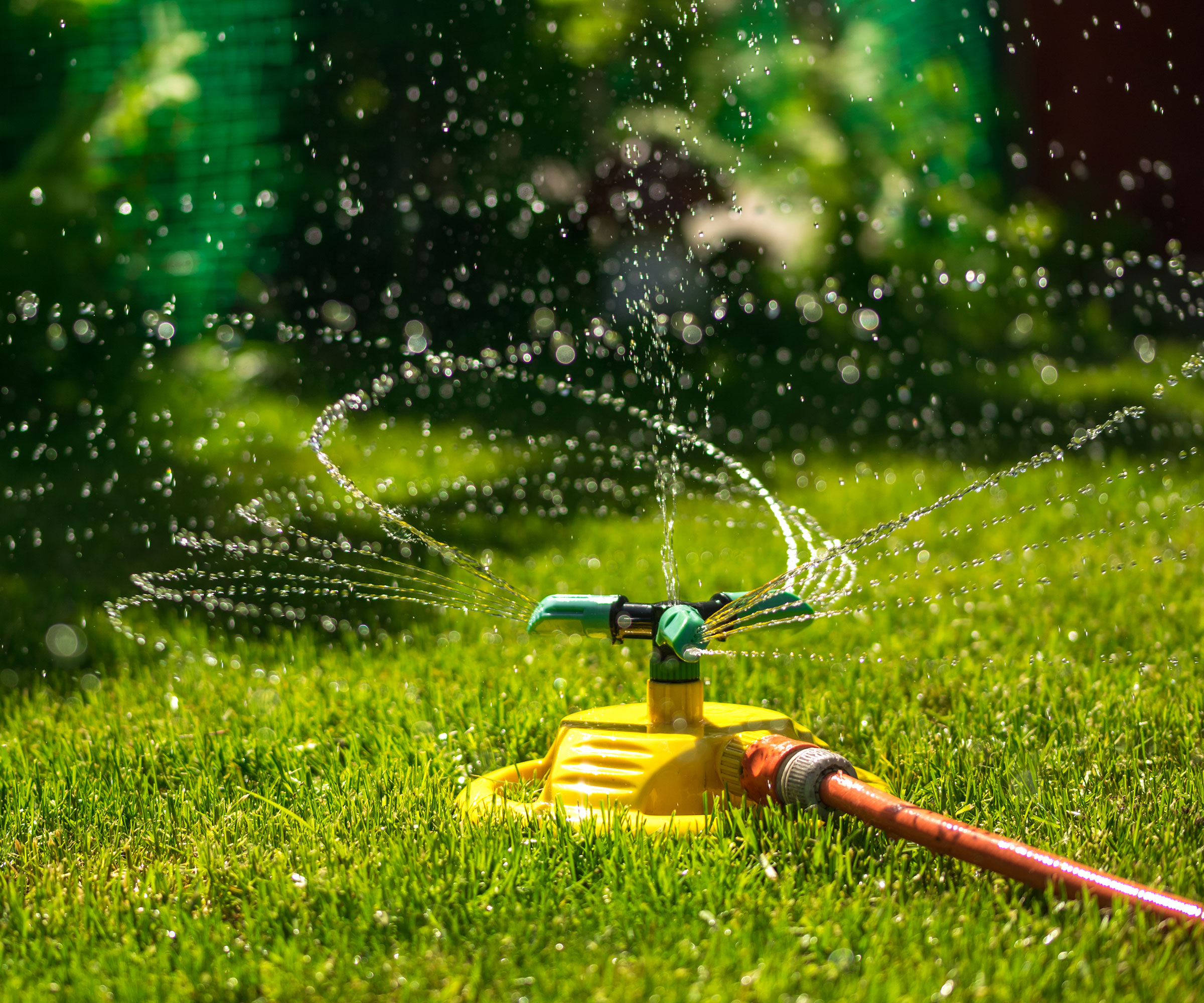
Verdict
‘If, every once in a while, you opt for watering the lawn at night, there would likely be no negative impact on your turf,' says Stacie Smith. 'However, if you watered during the night as a practice, it opens up the potential for a number of issues. And fungal and bacterial growth on a lawn looks very similar to heat stress. But it is much more damaging and typically requires chemicals to remedy.
‘For most lawns, watering between 6am and 10am is best,’ says Teri Valenzuela, Natural Science Manager at lawn care specialists Sunday. ‘Watering at this time allows for the watering to be absorbed properly, and it’s particularly beneficial to deter disease and prevent heat stress during high temperatures.’
Ultimately, if you are unsure whether or not it is a good idea to water your lawn at night, it is always best to consult with a professional to avoid making any serious lawn care mistakes.
Of course, even if you want to make your lawn green and thick, there’s no need to water it if the grass simply doesn’t need it, especially in these times of limited water resources.
Michael Deaton, turf agronomist at Pennington Seed Inc says, ‘Whatever watering regimen you choose, look to your lawn for the final word. Well-hydrated grass springs back up when stepped on. If grass stays depressed, it may need water. Curled grass blades or dull, blue-gray color are signs grasses are water stressed.’

Journalist Jill Morgan has spent over 20 years writing and editing gardening, interior and property features. Titles she has worked on include The English Home, House Beautiful, Ideal Home, Houzz and Modern Gardens and she writes regularly for H&G as a Contributing Editor. Whilst she is a dab hand at renovation projects and DIY, she is happiest when out digging in the garden or planning a new border.

